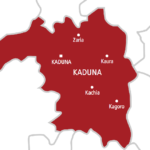Ostensibly intended to match words with action, President Muhammadu Buhari has set in motion several measures to drive his ‘Next Level’ agenda which served as the flagship of his campaign for a second term in office. Recently he set up a committee headed by the Vice President Yemi Osinbajo to develop a template for articulating various outstanding areas of intervention in national life along with strategies for their resolution. According to Buhari “I have approved the establishment of a committee, chaired by the Vice President, to assess the level of implementation of all our administration’s policies, programmes and projects – whether inherited, or started by us – and to help prepare us for governance over the next four years”. The membership of the committee comprises top government officials including the Chief of Staff to the President Mr Abba Kyari.
Following on the Osinbajo committee he also set up another committee to facilitate the implementation of the Fiscal Autonomy of state assemblies and judicial arm of government following the amendment of the constitution in that regard. The President’s new pace clearly marks an improvement on the situation in November 2015 when Buhari, fresh from the polls, spent five months before rallying his incoming ministers to a retreat and advocated his vision to be “Delivering change from precepts to practice”. At that occasion the President had observed that the ministers were coming on board the ship of governance at an interesting time. He had told them that “so much has been said about the state of our economy. It is expected that we make the running of Government at all levels as lean as possible, avoid waste and conserve resources. As ministers, you must be the vehicle that will administer the change”. How much of change drivers they proved has been a matter of varied judgments.
Considering that soon after his February 2019 electoral victory Buhari had promised the country that he would field only credible individuals as ministers in his second term, the new moves cannot be separated from his pronouncements, especially when in the public domain many of his ministers did not prove to be the vehicles of change as he and many Nigerians expected. Nigerians had always expected that given the humongous scope of challenge facing the country, he needed to run and finish strong, as only such disposition can transform the fortune of the country for the better. The new measures along with some others that may be coming hence provide the impetus for Nigerians to see his administration in a new light especially with reference to the mantra of Next Level.
Seen in context, the eligibility of the Vice President Professor Yemi Osinbajo to take on the assignment of producing a template for Buhari’s second term cannot be questioned. Even without serving as the Vice President of the country, his antecedents as a most distinguished Professor of law, accomplished author, and public officer among numerous other positives, make him a natural choice for the assignment. However, given the unmasked decadence of the Nigerian public service terrain, even Osinbajo and his team need prayers of all Nigerians and the grace of God to succeed. For in the final analysis the prospects for success by the President, especially with respect to finishing strong in moving the country to the next level, depend ultimately on the prescriptions of the Osinbajo template. And that is why the template should provide for a new dispensation which directs the country far away from the present state of affairs.
It is neither a secret nor an understatement that the country’ present cocktail of challenges predispose it as a nation in an advanced state of institutional dysfunctionality and tacit meltdown in several areas of national life. For instance, in one vein is the syndrome of collapsed infrastructure with the attendant detraction of quality of life for the ordinary citizen. In another vein is the heightened state of insecurity across the entire expanse of the country with more acute dimensions of the crisis in the North East and other flash points, where armed insurgency has remained the order of the day. Yet in another vein is the systemic lethargy in the country’s public service, with several operatives openly expressing reluctance to even deliver the services they are paid to deliver. Then is the monster of impunity with attendant widespread corruption, which sustains a sense of elf justifying personal aggrandizement even at the expense of the public weal.
Hence much as the Next Level, and whenever such will come, some of the most glaring areas of weakness of the country’s public weal are not far-fetched. For instance, as innocuous as it may seem, the abysmal failure of an agency like the National Identity Card Management Commission (NIMC) to provide the critical digital identification of all registrable Nigerians creates more problems than is casually realized. After over forty years of the national ID card project and the sinking of billions of naira, Nigeria cannot today say who is who in the country. By last count the agency is yet to register up to 40% of Nigerians into its data base. Meanwhile the security implications of the failure of NIMC for the country, seem to be lost on the authorities, as in the absence of credible digital profiling of the citizenry by the agency, anybody – terrorist, armed robber, kidnapper, just to name a few can do anything in the country, and go scot free and without trace. Clearly for an agency like NIMC Buhari does not need Osinbajo’s template to deal with the mess there.
And as it is for an agency as NIMC so the mainstream public service does not require Osinbajo’s testament to reform. For an establishment that constitutes the primary vehicle for executing the government’s political agenda, its present state may not drive the Next Level agenda of the administration.
Meanwhile the President needs to be commended for constituting a committee on the implementation of the autonomy for state assemblies and judiciary. It needs to be appreciated that the widely acclaimed bane of Nigeria’s democracy had been the compromised status of state assemblies and judicial arms as they had remained mere appendages for the respective state governors. Even the granting of autonomy to state assemblies last year through a constitutional amendment failed to spur the assemblies into asserting themselves.
With the setting of the autonomy committee Buhari is launching the country’s democracy into a new era. All he has to do now is to superintend the advent of a new democratic dispensation in his second term, which Nigerians need from him. The stronger democracy Buhari bequeaths to Nigeria at the end of his second term, the more enduring will be his legacy beyond his stint as Nigeria’s president.

 Join Daily Trust WhatsApp Community For Quick Access To News and Happenings Around You.
Join Daily Trust WhatsApp Community For Quick Access To News and Happenings Around You.

